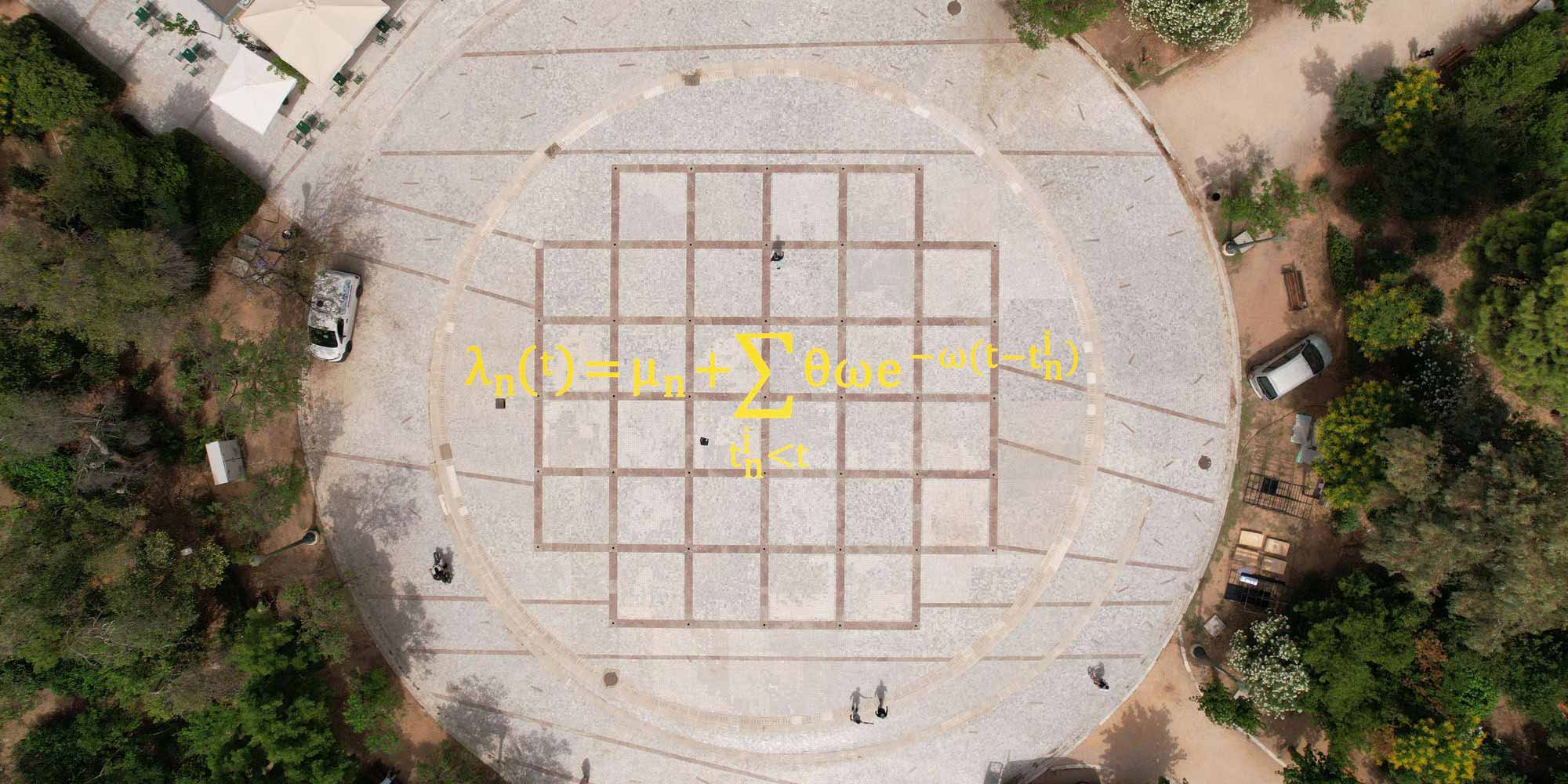On Art & AI is a two-day conference exploring how artists engage critically, conceptually and artistically with discourses around artificial intelligence, creativity, intelligence, labour and ethics.
The conference took place in the context of You and AI: Through the Algorithmic Lens festival program by Onassis Stegi, unfolding through two strands; “Creating with AI”, and “Reflecting on AI”.
The first strand, „Creating with AI“, is exploring AI and creativity, as well as artistic applications of artificial intelligence, machine learning, neural networks and other emerging technologies.
Video
Creating with AI
Session introduction
Part 1: Art, data and storytelling
Provocations by artists Anna Ridler, Suzanne Kite, Morehshin Allahyari
Followed by conversation and audience Q&A
Chaired by Irini Mirena Papadimitriou, curator, \“You and AI: Through the Algorithmic Lens\“
Break
Part 2: On AI and representation: automated creativity and AI as art
Talks by artists Stephanie Dinkins and Tamiko Thiel
Followed by conversation and audience Q&A
Chaired by Melanie Lenz, curator, Digital Art, Word and Image, V&A
Part 3: Friendly Advice
Artist Jonas Lund, in conversation with Sarah Allen, Director of MozFest, about his project Friendly Advice, the role of art in investigating the use of AI in our lives, and how that can be a pathway to invite more people into the conversation.
Morehshin Allahyari: Morehshin Allahyari is an Iranian-Kurdish media artist, activist, and writer based in Brooklyn, New York. She uses computer modeling, 3D scanning, and digital fabrication techniques to explore the intersection of art and activism. Her work has been part of numerous exhibitions, festivals, and workshops at venues throughout the world, including the New Museum, MoMa, Centre Pompidou, Venice Biennale di Archittectura, and Museum für Angewandte Kunst among many others.
Sarah Allen: Sarah Allen is the Director of MozFest, a unique hybrid event that is part art, tech, and society convening, part maker festival, and the premiere gathering for activists in diverse global movements fighting for a more humane digital world. Sarah has curated digital and physical art exhibitions and workshops at the festival to help broaden perspectives, learning, and voices as we build a healthier internet and Trustworth AI.
Stephanie Dinkins: Stephanie Dinkins is a transmedia artist and professor at Stony Brook University where she holds the Kusama Endowed Chair in Art. She creates platforms for dialog about AI as it intersects race, gender, aging, and our future histories. She is particularly driven to work with communities of color to co-create more equitable, values grounded artificial intelligent ecosystems. Dinkins’ art practice includes lens-based practices, emerging technologies, and community engagement.
Kite aka Suzanne Kite: Kite aka Suzanne Kite is an Oglála Lakȟóta performance artist, visual artist, and composer raised in Southern California, with a BFA from CalArts in music composition, an MFA from Bard College’s Milton Avery Graduate School, and is a PhD candidate at Concordia University. Kite’s scholarship and practice investigate contemporary Lakota ontologies through research-creation, computational media, and performance.
Melanie Lenz: Melanie Lenz is a London-based curator specializing in digital arts. In 2020, she curated the exhibition “Futurist Listening” by Steve Parker at Rich Mix. She is the curator of Digital Art at the Victoria & Albert Museum, where she co-curated the exhibition “Chance and Control: Art in the Age of Computers” (2018), convened the symposium “Art, Design and New Technologies for Health” (2015) and curated the exhibition “Transformations: Digital Prints from the V&A” (2012).
Jonas Lund: Jonas Lund (b. 1984, Sweden) creates paintings, sculpture, photography, websites, and performances that critically reflect on contemporary networked systems and power structures of control. His artistic practice involves creating systems and setting up parameters that oftentimes require engagement from the viewer. This results in performative artworks where tasks are executed according to algorithms or a set of rules.
Irini Mirena Papadimitriou: Irini Mirena Papadimitriou is a curator and cultural manager, whose practice draws on interdisciplinary and critical discourse to explore the impact of technology in society and culture, and the role of art in helping us engage with contemporary issues. Currently Creative Director at FutureEverything, an arts organization and innovation lab in Manchester, she was previously Digital Programmes Manager at the V&A and Head of New Media Arts Development at Watermans.
Anna Ridler: Anna Ridler is an artist and researcher who works with systems of knowledge and how technologies are created in order to better understand the world. She is particularly interested in ideas around measurement and quantification and how this relates to the natural world. Her process often involves working with collections of information or data, particularly data sets, to create new and unusual narratives. Her work has been exhibited widely at cultural institutions worldwide.
Tamiko Thiel won the 2018 Visionary Pioneer Award of the Society for Art and Technology (SAT) in Montreal for over 35 years of political and socially critical media artworks exploring place, space, the body and cultural identity. She was lead product designer on Danny Hillis’ Connection Machine CM1 (1986) and CM2 (1987) AI supercomputer, the fastest computer on earth in 1989 and now in the collection of MoMA NY.
Credits
Curated by Irini Mirena Papadimitriou (FutureEverything)
Commissioned and produced by Onassis Stegi
In the context of the European ARTificial Intelligence Lab network
Co-funded by the Creative Europe programme of the European Union


